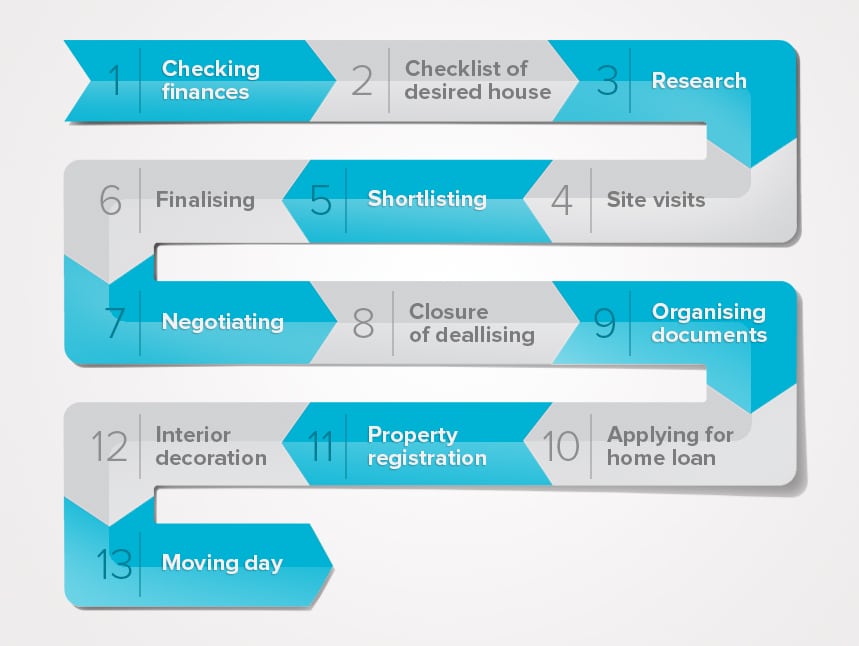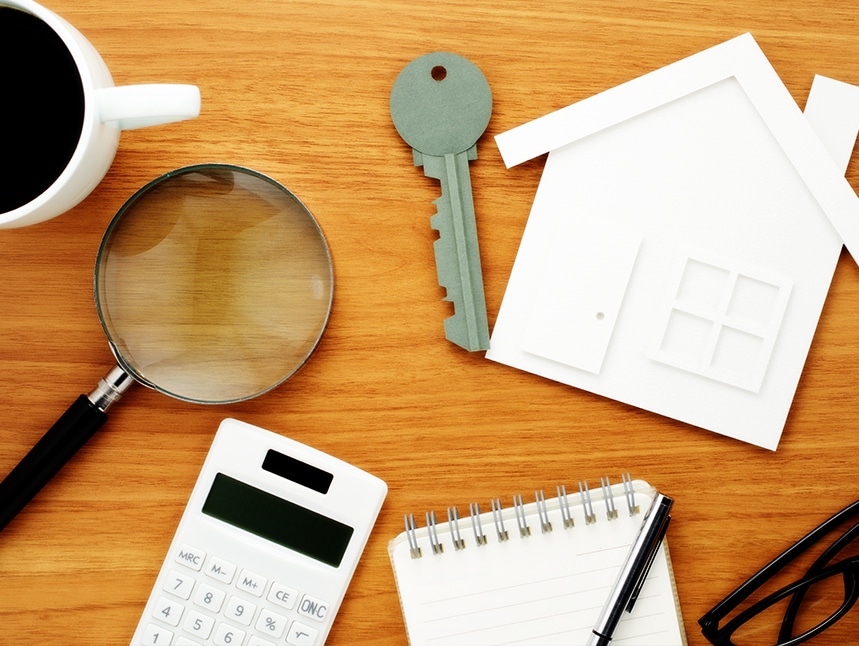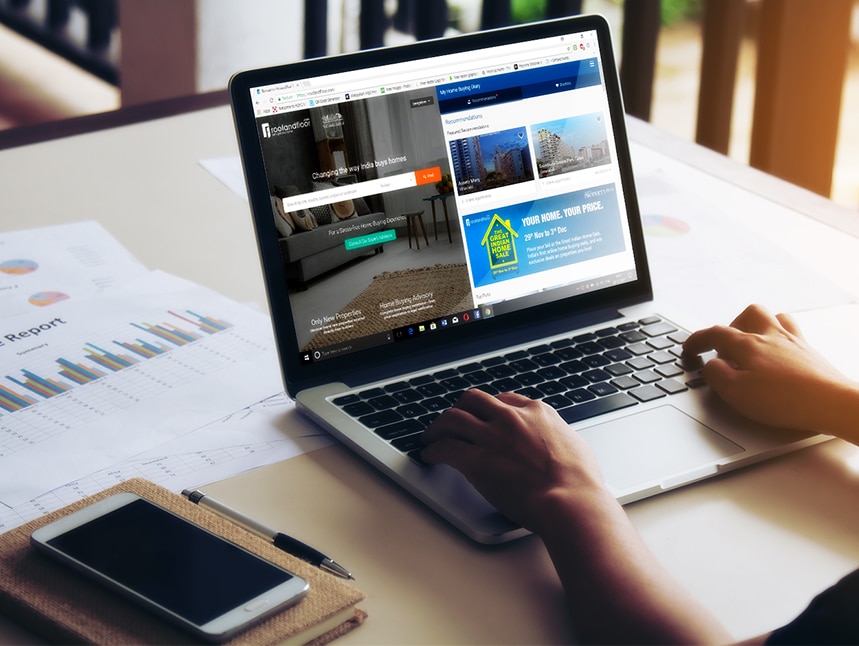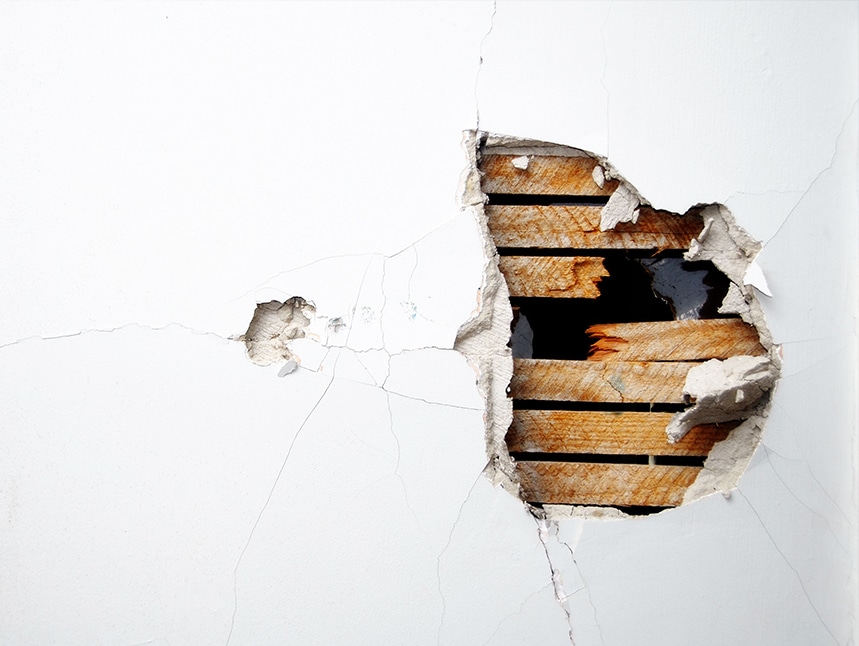Among mankind’s primal needs is the need to belong. Homes have provided that sense of belonging since time immemorial, making them subjects of many a famous creative endeavour around the world. Even young children prefer to draw homes as their very first pieces of art!
Given that homes evoke such deep emotion in all of us, it’s easy to forgo pragmatism while buying a home for the first time. However, there are more than just a handful of elements that first-time homebuyers need to consider.
At RoofandFloor, designing a satisfactory home buying experience for you is at the core of everything we do. We strongly feel that the better informed and prepared you are, the more seamless and trouble-free your journey of buying a home will be.
This guide is meant to equip you with required information that will lay a strong foundation to a joyful home ownership experience.
The Journey to a new home
The components of the home buying process
In order to really understand the cautiousness required while purchasing a home, it would be best to picture a chemistry experiment. The idea is to approach home buying with the same meticulousness and attention to detail. This would help provide a rational approach to what could otherwise end up being an impulsive purchase.

Stepping into your new home
- Checking finances
- Checklist of desired house
- Research
- Site visits
- Shortlisting
- Finalising
- Negotiating
- Closure of deal
- Organising documents
- Applying for home loan
- Property registration
- Interior decoration
- Moving day
Financial stocktaking
Begin with a very clear understanding of the state of your finances. Take a look at all your assets, expenses, income sources, and liabilities. You should have clarity on the following:
- Disposable income
- Savings
- Recurring expenses
- Investments and their current value
- Home loan eligibility
At this juncture, it is also a good idea to get an understanding of what upfront and concealed costs home buying could involve. At no point should you attempt to fund the purchase of your home with your savings.
It just does not make good financial sense to deplete your backup funds to buy property.
Checklist
Going into the home buying process without a clear understanding of yours and your family’s needs is a fundamental error. Take some time to make a list of what you believe would constitute your dream home.
This could include deciding on the following:
- Whether you want an individual home or an apartment
- New property or secondhand (if the latter, then what age bracket you would be targeting)
- Preferred location
- Your budget for buying a home
- Preference of builders
- Layout configuration (how many bedrooms, bathrooms and/or balconies)
- Amenities required
- Vastu compliance
Get them organised in a checklist form in the order of priority.
Research
Once you know what you’re looking for, you’re ready for the research stage. This is when you begin to look at property listings. Your criteria checklist should help you sort through poor fits pretty quickly. While looking through listings, simultaneously research the locations they mention.
A good residential location should have the following features:
- Good accessibility to and from other important areas in the city
- Ample options for public transportation
- Availability of civic amenities such as water, electricity, waste disposal and so on
- Good social infrastructure including hospitals, educational institutions, retail outlets and recreational options nearby
- Good chances of increase in property value (upcoming infrastructural development is an indicator of this)
Take this time to familiarise yourself with reputed developers and their projects. If the builder you’re considering sounds unfamiliar to you, carry out due diligence to ascertain credibility.
Site visits
The next step is to schedule site visits for listings you want to explore further. You could consider planning the visits in a manner such that you can complete visits in one specific location over a weekend.
Site visits are the perfect opportunity to compare what has been advertised to what is being offered in actuality. Take your personal criteria checklist, the apartment layout as advertised by the builder, as well as the location viability checklist.
Closely observe the construction as well as the fittings for poor quality. In case of a resale, check for structural damages that may need major repair.
Ideally, you should visit a few properties before you begin to shortlist them.
Shortlist properties
After the site visits are completed, take some time to mull over your requirements once again to ascertain which property seemed to be the best fit. Consult with your family to get a consensus and eliminate listings that didn’t meet the bill based on practicality rather than eagerness.
Negotiations
This part of the home buying journey is often tricky. Negotiations are not everyone’s cup of tea but not negotiating could mean losing out on the opportunity to make a good deal with the seller. Refer to helpful advice and pointers before approaching the seller for a negotiation.
Remember not to treat the negotiation like a zero-sum game. Agreeing on a mutually beneficial deal can go a long way in creating a stress-free transaction. However, don’t feel pressured to compromise if you’re not convinced that the deal fulfils your requirements.
Organising documents
When dealing with property documentation, it is critical that you treat it with utmost care. Ensure that you receive the complete list of documents required from the seller for the transaction as well as for the application of home loans. Additionally, consult a lawyer to ensure that the documents are legally viable.
Once the documents are deemed legally sound, you could go ahead and draw up the sale deed for the transaction. Ensure that the deed caters to both parties’ conditions.
Choosing and applying for home loan
Before applying for any home loan, it’s important to determine which one specifically suits your situation best. Among the parameters to consider, interest rates, loan tenure, loan to value ratio, and processing fee are just a few. For more information on how to identify the best loan, explore this article.
Applying for a home loan requires a specific procedure to be followed. To begin with, the lender will require original property documents, which you will need to procure from the seller. Once you fill out the application at the bank, an assessment will be carried to ascertain your ability to repay, the eligible amount as well as your credit score. Following this, the bank carries out an independent verification and valuation of the property. Once all criteria are met, the loan will be sanctioned and disbursed.
Pre-possession inspection
Before the seller hands over the home to you, conducting a pre-possession inspection is a must. This is to ensure that the property meets all the aspects as promised by the seller. It’s a good idea to create a checklist that includes construction quality, amenities, safety features as well as occupancy certificate and completion certificate.

Ensuring that seller delivers on all items in that list will help you avoid regrets at a later stage.
Registering the property
In order to legally gain ownership of the property, one must register it in his or her name. When the property is registered, the state maintains records of the same, which proves useful in case of disputes in future. Also, it is mandatory that the property is registered in case you wish to sell it at a later date.
The process of registration will require you to produce a specific set of documents. You will also have to pay a registration fee and stamp duty charges. Both stamp duty and registration charges vary from state to state. Determine the amount applicable in your case and ensure that the amount mentioned in the demand draft for the same is accurate.
Interior decoration
This is the fun part for most first-time homeowners when the dream of decorating one’s own home finally comes true. Whether you subscribe to the tenets of Vastu shastra or Feng Shui, it helps to follow some basic guidelines.
Maximising natural light, coordinating colour schemes, enhancing energy flow, using aesthetic yet functional furniture, and personalising the space with knick-knacks and indoor plants are just a few ideas to keep in mind. Depending on your budget, you could add as many intricacies to your home décor as you wish.
Moving day
Even when it comes to moving day, organisation is your friend. From meticulous packing and labelling to ensuring that furniture is re-assembled and placed exactly where you need it, moving in can be quite effort intensive.
Hiring reliable packers and movers can make the whole exercise significantly simpler. Choose highly recommended professionals for the same.

In case you wish to invite family and friends for a griha pravesha ceremony or a house warming party, the event will have to be organized in a way that doesn’t increase the existing stress of moving in.
Roadblocks in the journey
While one hopes that the journey of purchasing a home will be free of problems, it’s not always smooth sailing, unfortunately. According to a survey conducted in 2016 by Track2Realty to study home buyers’ satisfaction levels, there are some commonly occurring issues such as
- Lack of transparency
- One-sided agreements favouring builders
- Lack of communication from developers in case of delays in project completion
- Significant gap between builders’ promises and deliveries
- Poor facility management post sale
The survey was conducted in ten cities namely Delhi, Mumbai, Kolkata, Bangalore, Hyderabad, Ahmedabad, Chennai, Pune, Jaipur and Chandigarh in October 2016. 54% respondents expressed extreme dissatisfaction, 28% were moderately dissatisfied, and only 10% homebuyers were satisfied with their respective home buying experiences.
Additionally, homebuyers also experience significant trust issues with virtual marketplaces for realty. Given that purchases have traditionally been made in person, they understandably find it difficult to transition to virtual purchases for such significantly large sums of money.
Realty risks
As with all purchases, there are risks with buying property as well. The greater the magnitude of investment required, the more dramatic the risks become.
Here are some examples of risks that arise from purchasing or owning property.
Delayed project completion
This, unfortunately, has been a very common problem in the past. There have been too many instances of developers not delivering homes within the promised timelines and delaying handovers endlessly. With the implementation of RERA, accountability with respect to project delivery will hopefully improve, thereby putting buyers’ minds at ease.
Poor quality construction
Sometimes, despite buyers’ inspection, there could be structural issues that are not evident to the untrained eye. Such cases could prove to be rather problematic and require major repairs in future.
Although RERA protects buyers from structural defects for up to five years from possession, it’s best to independently confirm the quality of construction before the handover.
Tip: The easiest way to be assured of good quality construction is by buying homes built by reputed developers who have accreditations from CREDAI and/or BAI.
Valuation risks
For the uninitiated, it is easy to believe that the property is worth what the seller is quoting. There are plenty of occasions when sellers inflate prices much beyond acceptable levels.
In such cases, you would be making a serious loss if you pay the amount asked for without having a professional valuation carried out.
Poor returns
One of the primary disappointments with property purchases is when the value doesn’t increase as per expectation. If the property was purchased especially for investment purposes, low ROI could mean serious losses.
Tip: When researching locations, look at price trends over the past decade. Focus on locations that have shown rise in value. Also factor in locations that are likely to have infrastructural developments in the near future. That is a… Click To TweetNatural or man-made damages
Assets are prone to physical damages. In case of homes, damages could occur in the form of robbery, accidents, natural disasters, fires or floods among other things.
Title disputes
In India, land title records are not maintained efficiently. This increases the risks of title disputes greatly. When the land titles are not clear, transactions involving the land become legally void. Therefore, it is critical to have clear titles.
In all honesty, the journey of buying a home can seem arduous. However, considering that purchase of a home is a lifelong investment for most of us, securing the purchase with a detail-oriented approach is the prudent thing to do. The payoff for the effort invested in the purchase is decades of joy and comfort in a home that you can call your own.









According to Vastu, all directions are equally good for a house, what’s important is the direction your main door is facing. Apart from the main door, there are many more aspects that go into a good Vastu reading. Do visit a Vastu specialist with your floor plans and the building plans to get an in-depth look into the Vastu of your home.
very nice blog.
The real estate brokers are quoting very high price even when the demand is all time low.
Waiting for the time when prices will come to actual worth. Then I will buy and make the dream reality.
Good Information To Homebuyers
great article! thanks for sharing. Everyone has the dream to buy home but only few make it real. This blog provides good information about buying a home. There are many things to choose before buying home.
Thanks for sharing useful information.
Very detailed and helpful blog
You have covered each and every point in this article, thanks for sharing.
Great!